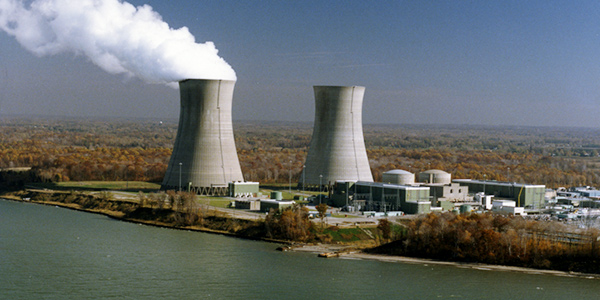By Christen Smith
A federal court temporarily waived Ohio’s preregistration law for petition circulators last week after a group collecting signatures for a statewide ballot referendum against nuclear subsidies claimed its opponents were stalling their efforts through harassment and bribery.
Ohioans Against Corporate Bailouts filed a lawsuit in the U.S. District Court for Southern Ohio that accused supporters of the state’s nuclear subsidies of offering bribes to undermine its attempt to collect 266,000 signatures by an Oct. 21 deadline.
The organization asked the court to immediately suspend a state law that requires it to disclose the identities of its petition circulators to the secretary of state on a “Statement of Receiving or Providing Compensation for Circulating a Statewide Issue Petition,” called Form 15. Failure to file the form is a fifth-degree felony under Ohio law, however, the group said the mandate violates free speech rights.
The group alleges that its opponents accessed the referendum circulators’ identities through public records requests and used it to target them, offering cash bribes to abandon the campaign or buy their signatures. The suit, filed Oct. 7, also asked for another 90 days to collect signatures.
At a hearing on Friday, Judge Edmund Sargas Jr. suspended the Form 15 requirement through Oct. 25, saying that without injunction, “the plaintiffs will suffer irreparable harm.”
“The interests of the public would be best protected by the enforcement of plaintiffs’ First Amendment rights, and any third-party injury could be minimized by statutory mechanisms for detecting and deterring election fraud,” Sargas said.
Advanced Micro Targeting, a Nevada-based company that manages the referendum effort, said in a declaration filed Wednesday that its employees spend up to eight hours processing Form 15s for each new hire. Some 15 to 20 potential employees have been lost because of the “time and burden” involved with the process, and the company says it will not take on future statewide referendum efforts “in light of significant diversion of time, energy and resources” necessary to comply with state law.
The “draconian” Form 15 mandate, one-month delay in getting the petition approved and interference from “well-funded and overly aggressive” opposition has further complicated the referendum effort, the group said in court documents.
“This administrative requirement only serves to make our petition circulators targets,” Chris Finney, an attorney for the organization, said in a press release. “One of our circulators was called less than hour after they filed their Form 15 with the state of Ohio and received an offer to quit working for the campaign if they would take a buyout bribe.”
Sargas rejected the organizations’ two other requests — to waive state laws that require government approval of petition summaries and certain signature distributions across counties — but did not explain why.
If the referendum is approved, voters would decide whether to overturn House Bill 6, which would provide $150 million annually to First Energy Solutions’ two nuclear plants starting in 2021. The suit names as defendants Ohio Secretary of State Frank LaRose, who is responsible for certifying or rejecting the ballot measure. Also named was Columbus City Attorney Zach Klein, who is responsible for enforcing violations of the Form 15 requirements in the state capital.
The group’s suit does not identify those who took part in the alleged bribery attempts. The referendum drive is being opposed by groups calling themselves Ohioans for Energy Security and Generation Now.
FES did not respond to requests for comment on the allegations Wednesday. Attempts to obtain comments from Ohioans for Energy Security and Generation Now also were unsuccessful.
However, Carlo LoParo, a spokesman for Ohioans for Energy Security, told Cleveland.com the lawsuit was a “desperate act.”
“It’s now clear why they’ve peddled irresponsible rumors and made unsubstantiated charges over the past few weeks. They can’t get Ohioans to sign their jobs-killing petition,” he said.
State Attorney General Dave Yost said in a letter to the U.S. attorneys in Columbus and Cleveland that media reports of harassment and intimidation concerned him and that he intended to use all of his office’s resources to “protect the integrity of the petition process.”
Petition “supporters have a right under law to collect signatures without interference,” he said in a press release. “My job as attorney general is to call balls and strikes like I see them, and this one is a wild pitch. It’s time to knock it off.”
The federal suit is the latest twist in the organization’s sprint to gather nearly 266,000 signatures over three months to get the referendum on the November 2020 ballot. (See Ohio Nuke Ballot Petition Approved.)
FES asked the state Supreme Court to block the vote last month, arguing that the new ratepayer fees — ranging from 80 cents up to $2,400/month — are equal to a tax, making the legislation ineligible for being overturned by voters. (See FirstEnergy Solutions Challenges Nuke Vote in Ohio Supreme Court.)
LaRose, in an answer filed with the Supreme Court last month, denied the company’s assertion that he had any legal duty to stop the petition.




